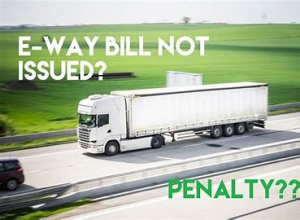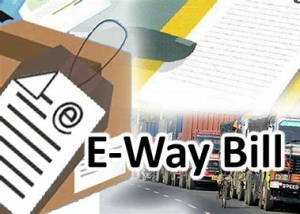Enterprises thrive on manufacturing efficiencies derived from optimum asset utilization, working capital optimization, and nurturing core competencies. Job work offers one such avenue, providing accessibility to external partner skills, buffer inventory reductions, and improved time-to-market capabilities.
However, when such temporary goods transfers warrant inter-state movement, applicable GST compliances require the generation of corresponding documentation for visibility. Let’s assess adverse outcomes that could arise from non-adherence to e-way bill stipulations in the context of job work transactions, along with key mitigation strategies.
Consequences of Missing the E-Way Bill in Job Work
While other obvious penalties exist, the absence of an e-way bill predominantly threatens business trust, affecting continuity.
-
Customer Reliability Deficit
For companies thriving on professional excellence through consistency in delivery commitments towards clientele like FMCG majors, any cracks in the armor around supply chain robustness pose undesirable risks.
Now take a packaging contractor entrusted with displaying proactive diligence across finished goods labeling and cartoning needs who starts frequently struggling to ensure orderly deliveries.
Thereby imputing negative impressions on overall service dependability is vital for customer retention. which in fiercely contested markets may risk relationships with globally renowned buyers having little risk appetite given their own commitments.
-
Working Capital Blocks
To offset processing delays, the packaging contractor has undertaken capacity augmentation by leasing smarter inventory handling infrastructure funded through loans. However, the history of frequently explaining procedural non-compliance to officials during transit checks reflects poorly on overall governance integrity.
Thus, applying for enhanced credit facilities from financing institutions to fund growth expansion plans or even secure working capital cushions vital for daily operational needs may suffer constraints owing to poor grading by raters, deterring sanctions required for sustenance and thereby impacting viability.
-
Deferred tax costs
Additionally, the cascading effect of e-way bill non-adherence by an unregistered job worker would entail the denial of eligible input tax credits to partnered principal enterprises sending goods for processing, who would account for such P&L hits in their books.
Likewise, other eligibility losses also accumulate around export incentives, concessional duty eligibility, etc., eroding financial health. Thereby indicating how ensuring diligent documentation holds fiscal relevance as well from an enterprise continuity perspective beyond mere compliance integrity facilitating harmony.
Likewise, other tax, policy, and incentive losses also accumulate. Thus, we note that e-way bill compliance becomes inevitable for frictionless job operations.
Also Read: What Are the Consequences of Not Generating An E-Waybill for Exports?
Penalties for Not Using E-Waybill in Job Work
The mandate for e-way bill integration for job work supply chain movement draws statutory backing under the following GST provisions:
-
Section 122, CGST Act
The provisions expressly provide for significant fiscal penalties to the tune of Rs. 10,000 or INR equivalent to 100% of the tax liability determined on proceedings finalization, whichever is higher, for any lapses detected around mandatory goods movement documentation requirements facilitating transparency during inter-state trade.
Thus, in cases warranting e-way bill creation, like temporary job work transfer of goods, where an unregistered worker omits adherence due to ignorance or cost savings compulsion, liability risks emerging seem formidable, necessitating documentation discipline.
-
Section 129, CGST Act
This section allows concerned officers to resort to visible demonstration consequences like inspection, search, and seizure of goods in transit, besides detaining the very vehicle deployed without satisfactory paperwork trail as mandated during procedural checks approving the origin or destination legitimacy of goods.
Thereby, indicating the physical and monetary adversity awaiting in the absence of diligent e-way bill records, especially given job work, signifies high-frequency goods movement on industrial corridors, risking scrutiny possibilities.
-
Second Proviso to Rule 138
This section expressly indicates that the stipulation around mandatory e-way bill generation basis value threshold criteria warrants compliance both during initial goods transfer by the principal for job work processing by an external party as well as during post-processing return delivery instances, thereby closing possible interpretation loopholes seeking procedure bypasses that cannot be sustainably construed.
-
Rule 55 of the CGST
To enable structured dispatch and delivery records at both ends, this rule enforced the issuance of serially numbered delivery challans (with duplicate copies for sender, receiver, and transporter, respectively) when the principal sends goods documents demonstrating dispatch particulars that also form the basis for corresponding e-way bill generation, reinforcing compliance and allowing tracking integration.
Also Read: Legal Provisions and Penalties Associated with E-waybill Non-Compliance
Job Work Compliance and E-Waybill Repercussions

Mere formulation serves little until regulated perceive innate value from adherence. For documenting authorities, value emerges from:
-
Revenue Visibility
A key motive behind emphasizing documentation integration around job work and goods movement monitoring is to obtain clear revenue visibility, especially given the inter-state nature of transactions attracting applicable IGST implications that need to be correspondingly deposited when filing GSTR-3, which authorities can verify based on available e-way bill records indicating goods trail.
In the absence of adequate tracking records, gaps in the risk scope for potential revenue leakage could be exemplified.
-
Deterring Unlawful Diversion
In the era before uniform digitization, there were clandestine diversions wherein high-value machine components sent to job sites for activities like precision testing, etc. would be secretly dismantled and constituents sold, evading applicable GST.
Mandating valid documentation trail-like e-way bills during goods transit flows plug this risk to a large extent, thereby safeguarding ethical manufacturers, so relying on such temporary trade transfers for their output efficiency or expertise needs remains least vulnerable to such a menace till goods intact return safely post-processing, avoiding local unlawful dispatches.
-
Uniform Procedural Discipline
Trade monitoring requires systemic documentation protocols mandating stakeholders follow defined discipline irrespective of transaction nature or industry dynamics, enabling uniformity that aids effective governance and assessments.
For instance, having common e-way bill compliance prerequisites before goods dispatch provides a structured method for allowing cargo tracking integration for both monitoring authorities and participating enterprises, whereby detours seem visible.
This infuses procedural discipline vital for administering revenue outcomes responsibly and objectively rather than subjective, isolated interventions prone to inconsistency and human limitation challenges.
| Key Aspect | E-Way Bill Relevance |
| Goods Dispatch | It helps establish a goods movement trail from the principal’s premises. |
| Transit Recording | Transporter reconciliation integrates vehicle and item details, enabling tracking. |
| Processing Linkage | Links between the principal and job-worker aiding recognition. |
| Productivity Trail | Provides inventory volume visibility, indicating processing output scales. |
| Taxation Linkage | Reconciles documentation with return mechanisms for credibility. |
Let’s assess how this affects stakeholders:
Also Read: E-Way Bill for Job Work: Understanding the Compliance Requirements
Risks of Not Generating an E-Waybill for Job Work

Temporary goods transfers constitute an indispensable trade artery for enterprises wanting to optimize productivity and asset utilization by leveraging external partner skills or infrastructure through job work mechanisms spanning outsourced activities like packaging, tooling, labeling, etc.
However, keeping associated documentation, like e-way bills, integral to such practices remains vital. Let’s assess why:
-
Business continuity risks
Say a garment trim parts manufacturer engages a specialized agency for precision die punching of intricate leather shapes locally. Now any underpreparedness around corresponding paperwork can disturb commitments…
Firstly, delayed availability of such punching output can substantially bottleneck production schedules, sending shockwaves across integrated plant operations planning awaiting component stock clearance before transitioning units commence next process steps like stitching, buttoning, etc., thereby hampering continuity and revenue reliability.
Secondly, to offset such processed material, significant current asset allocation towards buffer stockpile storage happens, eroding working capital liquidity measurements crucial for daily operational needs relying on the ready availability of cash equivalents.
-
Financial Risks
Thirdly, the hidden costs accumulate: output volumes get impacted, lowering profitability, and growth investment plans may require funding where previous non-compliance history poses eligibility risks that may be unwittingly holding the enterprise financially hostage.
-
Stakeholder trust risks
Fourthly, beyond the supplier enterprise, spillover risks emerge, like transporters facing scrutiny for procedural gaps, introducing reluctance, or principal enterprises hesitant towards further job work commitments owing to unreliable experience, eroding vital supply chain continuity and stability.
Thus, the documentation discipline bears relevance, enhancing system trust.
Want to know what the consequences of non-cancellation of an e-way bill are. Then you need to click on this post link by Captainbiz.
Impact of Non-Compliance in Job Work E-Way Bill

When we talk about job work, aspects like skills leverage, demand variability buffering, and reduced asset stubs occupying factory spaces provide perceivable virtues, attracting enterprises to adopt such models and enabling them to stay focused on achieving core competence through outsourced routes.
However, if associated documentation compliance requirements get undermined in pursuit of trivial shortcuts for quick savings, the pitfalls can outweigh the risks in the long run. Let’s see how:
-
Trade Reliability Deficit
Data reconciliation gaps open the possibility that goods meant for a declared destination probably got clandestinely diverted during transit to evade taxes, which may have been secretly supplied in local markets.
Over time, these gaps breed skepticism about intent integrity and the existence of purposeful negligence. Thereby, regretting route reliability affects continuity assurance.
-
Procedural Credibility Erosion
Additionally, the absence of goods tracking records raises questions about whether procedural diligence also got bypassed around aspects like quality procurement of inputs sent for job work, accurate invoicing, item batching before initiating transit, etc., faltering the credibility of steps leading up to transportation.
-
Reputation Dent
Thus, over and above the revenue leakage risks that authorities anticipate, such negligence also undermines vital trust elements like reliability, commitment, and procedural discipline that job-working engagements thrive on, requiring immense stability of operations between partnering enterprises, mostly having size or capability asymmetry.
Thereby imputing negative impressions both externally and within the ecosystem forcing participants to consider the sustainability impact of partnerships requiring strong yields on the productivity front but also the highest governance standards deserving suspension of doubt.
Legal Consequences of Omitting the E-Way Bill in Job Work
The legal provisions take a stringent stance towards consistent defaulters, leveraging circular no. 64/38/2018, which expressly states:
“Small errors in e-way bills will cost Rs. 1000.Apart from the details specified in the IGST Rules, the e-way bill comprised other invoice details.”
Thereby, while reasonable relief exists for minor data entry errors, consistent ignorance towards stipulated documentation protocols could attract litigation.
Now let’s discuss key mitigation strategies.
Mitigation Strategies
- Seek partner transporter support in generating e-way bills for the return leg.
- The principal can declare job-worker premises as additional places of business.
- Maintain diligent account records and return filings. Integration helps substantiate movement intents.
Thus, we see that ensuring diligent compliance integration with partner service providers, along with maintaining credible reconciliation and an auditable trial of procedural discipline, could mitigate adverse implications from non-adherence while strengthening system trust.
Conclusion
In summary, allowing short-term gains by diluting mandated job-related goods movement documentation like e-way bills entails hidden risks beyond just visible fines.
It poses continuity of operations and stakeholder trust perils, which get magnified for enterprises entirely relying on such outsourcing trade models for sustenance.
However, reputed employers also have ethical obligations towards smaller players down the chain. Hence, nudging unregistered job workers around compliance applicability aspects through handholding consultancy assistance goes a long way in preventing the spillover effect on the larger ecosystem.
thereby paving the way for long-term trade harmony through a collaborative approach rather than seeking punitive resolutions.
Frequently Asked Questions
-
What recourse does the principal have if an accident destroys goods while in transit back from a job worker lacking an e-way bill?
Ideally, aspects like applicable insurance coverage stipulations and coming goods value would apply, especially where non-compliance gaps get evidenced. However, ethical enterprises realize the spillover implications and adopt a constructive approach based on partnership ethos rather than seeking punitive resolutions.
-
If a job worker defaults on quality norms where e-way bill compliance was jointly skipped to save costs initially, how can the principal legally nullify the contract and retrieve goods?
Rather than unethical shortcuts jeopardizing system trust, sound SLAs outlining quality frameworks, retaining appropriate liability cushions through insurance, and pre-aligning on applicable compliance responsibilities right from the contract stage set the tone for transparency and easier conflict resolutions, protecting the interests of both parties ethically.
-
What actions can the principal take if an unregistered job-worker, despite commitments, delays filing mandatory returns, leading to the principal’s ITC disallowance?
This warrants pre-defined SLAs specifying timebound documentation requirements where lacking registrations exist, coupled with appropriate liability and indemnity clauses for ensuring interest protection available to defer losses. Proactively easing registrations and periodic compliance reviews minimizes adverse impacts.